Tag Archives wetlands
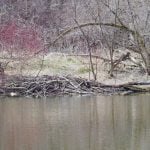
Drought, farms and The Beaver Manifesto
Beavers have a water management role — especially during drought — book argues, despite the rodents being less than popular with farmers
Letters to the editor – December 19, 2024

Index calculates wetlands value for agriculture
The main outcome from COP29 was loose commitments to spend more on mitigating the effects of climate change
WINNIPEG — Food and agriculture were the main themes at the 2023 edition of the United Nations climate change conference, the Conference of the Parties. COP28 in Dubai was dubbed the Food COP because of that focus on agriculture. Other organizations said food was finally on the table in climate discussions. Food production was also […] Read more
Wetland advocates hoped Sask. election would talk water

Sask. wetland retention number questioned
The opposition NDP claims the government is overstating the percentage of wetlands that remain intact in the province
REGINA — The opposition NDP questioned the Saskatchewan government’s wetland retention last week, saying the Water Security Agency is advertising false numbers. Erika Ritchie, MLA for Saskatoon Nutana, said the agency is using public money to publish ads claiming that 86 per cent of the province’s wetlands are undrained. “If only that were true,” she […] Read more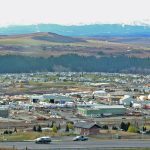
U.S. to fund grassland, wetland conservation
Three Canadian groups are developing a similar initiative that would prevent the conversion of grassland to other uses
WINNIPEG — The U.S. Department of Agriculture has made a $138 million commitment to preserve grasslands and wetlands and cut greenhouse gas emissions from agriculture. U.S. agriculture secretary Tom Vilsack announced the investment March 13, explaining the funds come from the Inflation Reduction Act, which is intended to transition America toward a greener economy. “(It) […] Read more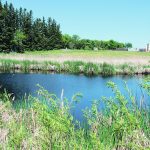
Sask. wetland plan to have local focus
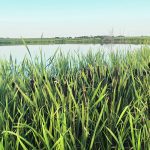
Critics unhappy with proposed wetland policy
University of Regina researcher says embedding wetland policy within an agricultural drainage framework is backwards
REGINA — Critics of a proposed wetland stewardship policy in Saskatchewan say it fails to properly address the issue. Academics who sat in on consultations about the plan said it focuses more on agricultural development than retaining wetlands and habitat, and they don’t believe the Water Security Agency’s data that says 86 percent of Saskatchewan […] Read more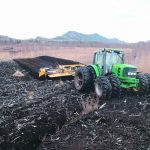
Peat producers focus on environmental impact
The industry says it consults with local rural communities to create jobs and apply post-harvest restorative practices
About 11.8 million cubic metres of peat are harvested a year from Canadian wetlands and shipped to the United States for processing. Then it is distributed back into Canada and throughout North America. The demand is high and Canadian peat harvesters can’t keep up. Peat lands exist across Canada. They make up 13 percent of the nation’s total land mass.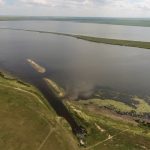
Alta. study explores treated water’s impact on wetlands
Project aims to determine how long wetlands can sustain current treatment levels and how the process can be improve
Researchers at the University of Lethbridge are looking at how treated water being discharged into a wetland from a town and a meat processing facility is being dispersed into the wider watershed. Part of the five-year study will focus on the Frank Lake wetland located near High River, Alta., home to Cargill’s meat processing facility, […] Read more




